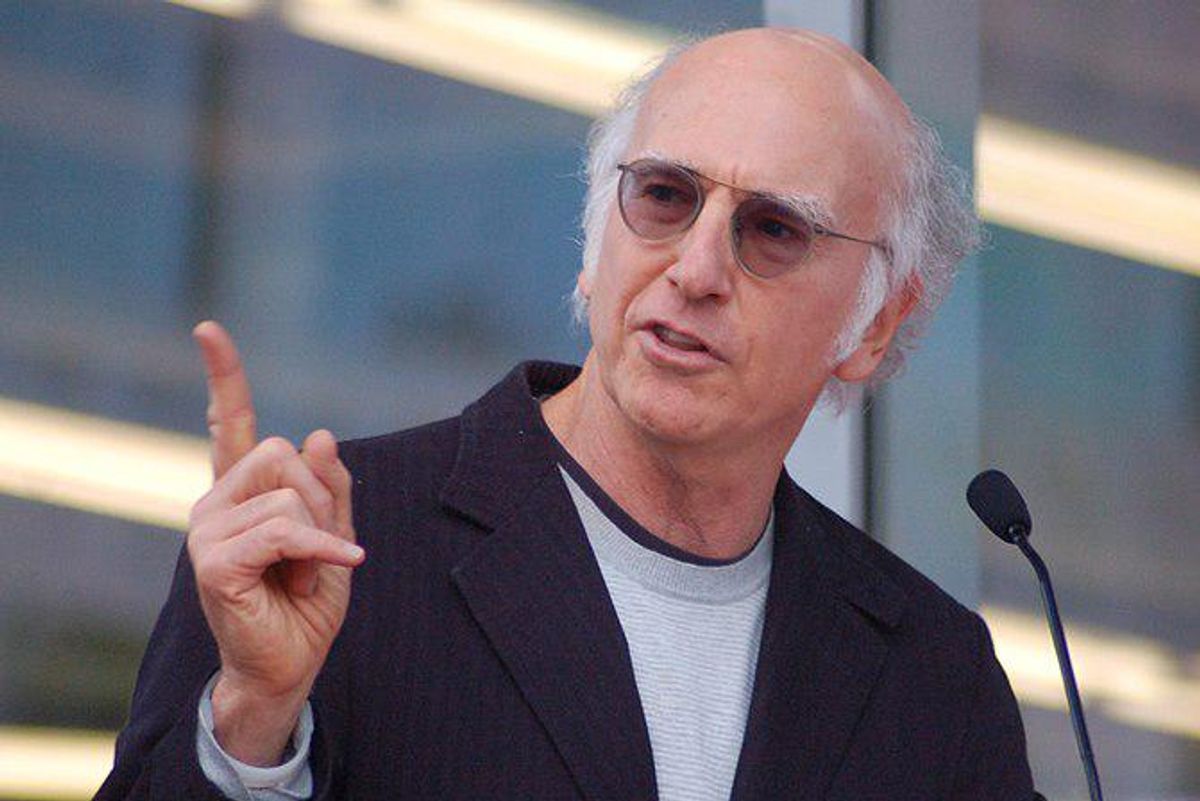One of the toughest things about being a parent has to be helping your child discover and nurture their talents. You seek to encourage them to try new things without overwhelming them. You want them busy with lots of enriching activities but not so busy they don't have time to just be a kid. And when you do stumble on something they have a knack for, you tread lightly, wanting to give them every opportunity to pursue it without pushing too hard.
It's a really tricky balance to get right. Maybe that's why we're so fascinated with child prodigies, or even just talented kids whose parents have done a bang-up job of giving them the space and encouragement to explore their creativity.
Joseph, a dad from Dublin, Ireland says he started drawing and painting in the evenings about a year ago to help him unwind from work. It's a great idea, because adult coloring has been shown to have a ton of positive mental health effects. Plus, it's fun! But one unintended and adorable side effect of Joseph's coloring was that his young son, Philip, decided he wanted to emulate him.
Philip had always loved coloring but, Joseph says, "I had to get him some pastels, and he started trying on the same drawings as I did," Joseph says. "I found it absolutely adorable when he was seriously repeating the same movements as me: cleaning the tips of the pastels, blend the edges of colors, etc."
One thing quickly became apparent: Philip was much, much better than his old man.
Last year, he made a painting that was so good he couldn't resist sharing it on Reddit. Within two days, it generated over 100,000 views and 3000 likes."
The overwhelming response? "Uh, 5-year-olds can't do that."
Have a look and see for yourself. Not bad, eh?
 Philip painted this blue mountain lake piece with help from a YouTube tutorial. bruncvik/reddit
Philip painted this blue mountain lake piece with help from a YouTube tutorial. bruncvik/reddit
The first piece Philip shared is wildly impressive. Some commenters couldn't believe that a 5-year-old could have made it, but I think you can see it pretty clearly. It has just enough childlike crudeness, but the stylistic flair is just off the charts, from the whispy sky to the slightly foreboding trees. Redditors agreed that it was incredible.
"Thats better than I can do now at 25," one Reddit user wrote.
Others questioned whether the boy might be related to Bob Ross.
"I told [Philip] about it, and I guess that was his first big dopamine hit," Joseph says of going viral. "Since then, he is asking to draw more often, and there's often an intrinsic reward for him. One painting got submitted to a charity auction at his school ... I don't pressure him to draw; he's coming to me to ask whether he can use my pastels"
One critical part of the story is that Philip often follows along with YouTube videos that his dad finds for him. Lest you think this should diminish how impressive the painting is, quite the contrary. As someone with an almost-5-year-old of my own, I've seen the kind of stuff kids this age are capable of drawing — and it's not this! No matter how much instruction they have.
The structured YouTube videos were able to unlock Philip's natural talent and guide him in a way that his dad never could.
Here's the finished painting he was following along with. Honestly? I like Philip's better! It has a lot more personality.
 Here's what the painting was "supposed" to look like. She'z ART/YouTube
Here's what the painting was "supposed" to look like. She'z ART/YouTube
The response to Philip's first painting was so positive that his dad decided to post another piece.
You gotta give the people what they want!
I love this one, too. The youngster's talent is on display again, with an excellent color palette and aggressive strokes giving it life. Remember — the kid is five years old! Five! Usually they can barely muster a convincing stick figure.
 I love this haunting purple and orange piece Philip painted! bruncvik/reddit
I love this haunting purple and orange piece Philip painted! bruncvik/reddit
And again, here's the model painting from YouTube. Joseph said his own versions of these paint-alongs come out looking a lot like the example, but that his son has an incredible way of making them his own.
As you might expect from a 5-year-old, the brush strokes are a little more crude and dramatic — but they're purposeful, as well! Philip's renditions have a lot of energy and seem to leap off the page.
But what do I know? I'm no art critic. However, the huge social media response definitely shows that Philip is onto something here.
 A YouTube tutorial of a sunset river helped Philip learn to paint the scene. She'z ART/YouTube
A YouTube tutorial of a sunset river helped Philip learn to paint the scene. She'z ART/YouTube
Philip's dad gives a lot of thought to the right way to nurture his son's talent without pushing too hard and snuffing it out.
"He attended an afterschool art club, where they experimented with different media, but he found it too restrictive. He is still bringing home new art at least twice per week, but it's something he does on his own," dad says, not sure if pushing his son into formal art instruction is the right thing to do.
Experts say that pushing too hard when your kid shows a flair for something, especially regarding longterm goals (like going to art school or becoming a professional artist one day), can backfire big time and make them feel overwhelmed and resentful.
Believe it or not, the process of nurturing and teaching starts super early. Art teachers and experts agree that how you react to something as simple as your toddler's nonsensical scribbles can have a big impact on their self-esteem and enjoyment of making art.
@susanstrikeryoungatartScribbles provide an important opportunity to talk to your toddler, provide vocabulary, and promote literacy! #reading #readiness #scribbles #Vocabulary #todddler #art #kidsart #childrensart #childrenspainting #goodartprojects #teachingontiktok #criticalthinking #fypシ #fypage #teachingart #artlessons
Heidi Hass Gable, a former gifted child, says in a TedX talk that prodigies and brilliantly talented children can be extremely sensitive.
They often have to suppress their talents in a desire to fit in with all the other kids. That makes raising them and nurturing that talent a delicate high-wire act. Experts recommend making sure gifted kids get lots of downtime and to not place too much emphasis on achievements like grades, awards, contest wins, etc. Praise the hard work and the process but try to help them avoid attaching their self-worth to external validation.
- YouTube www.youtube.com
Joseph finds lots of subtle ways to encourage his son's interest.
"One thing I do with him, though, is to talk about painting when we are out and about. Last weekend, we went to watch the sunset, and I asked him what colors he'd use for the clouds. ... Philip is just as obsessed with different shades (his current favorite word is 'vermilion' and his favorite color is 'turquoise'), and how they mix."
Being the parent of a talented or gifted kid is no easy job. There are a lot of pitfalls and plenty of ways to bungle your attempts to nurture that talent. As impressive as Philip's artwork is, especially for his age, the thoughtful parenting on display in this story is just as awesome.
This article originally appeared in January. It has been updated.





 The pay is good and you get to drive this sweet truck around!Photo by
The pay is good and you get to drive this sweet truck around!Photo by  Three USPS boxes. via
Three USPS boxes. via 

 Philip painted this blue mountain lake piece with help from a YouTube tutorial. bruncvik/reddit
Philip painted this blue mountain lake piece with help from a YouTube tutorial. bruncvik/reddit  Here's what the painting was "supposed" to look like. She'z ART/YouTube
Here's what the painting was "supposed" to look like. She'z ART/YouTube  I love this haunting purple and orange piece Philip painted! bruncvik/reddit
I love this haunting purple and orange piece Philip painted! bruncvik/reddit  A YouTube tutorial of a sunset river helped Philip learn to paint the scene. She'z ART/YouTube
A YouTube tutorial of a sunset river helped Philip learn to paint the scene. She'z ART/YouTube 
 Traditional strawberry farming takes up a lot of land.
Traditional strawberry farming takes up a lot of land. Strawberries are a wildly popular fruit.
Strawberries are a wildly popular fruit.